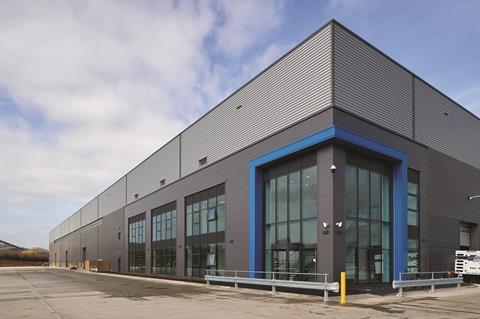The term ‘modern methods of construction’, or MMC, has been bandied around for more than two decades and it’s safe to say that it’s no longer being considered a fringe theme on the news agenda.

With the government announcing plans for an MMC taskforce in the Budget and Homes England’s announcement of the Affordable Homes Programme 2021–2026, which will require organisations to deliver at least 25% of their homes through MMC, this is a watershed moment for the industry.
While many have boasted about their credentials on speed of building, quality and consistency, the post-pandemic world is finally getting to grips with MMC’s broader merits in the face of the housing shortage, lack of good-quality housing, challenges with sourcing materials and a deepening skills shortage.
As a housebuilding business, Countryside was one of the earliest adopters of MMC, taking into consideration housing policy, housing needs and the future of the supply chain.
The post-pandemic world is finally getting to grips with MMC’s broader merits
Creating sustainable, futureproof communities that serve the needs of those that live there is ingrained in our DNA, and combined with the aspirations and demands of the business, the need to create our own facilities was inevitable.
We have already invested £20m in our two factories in the north and Midlands and a third in Bardon, Leicestershire, which opens in the summer, and plan to deliver 6,000 homes per year by 2025 using MMC.
We have invested in research and development at Bardon, recognising the need to be at the forefront of innovation. This not only underpins our flourishing workforce strategy, creating vital opportunities, but also helps create our futures and those of future generations.
With MMC taking prime position on the discussion table, it must no longer be treated as a stranger to the industry or housebuilding.

From the very beginning, our mission has been centred on quality and innovation, and therefore integrating our off-site manufacturing operations into our wider business was a natural progression, further accelerating and complementing our ethos of placemaking and community creation.
It has also enhanced the agility of our build programmes, ensuring that we are able to constantly evolve both the process and product.
Supply chains
Our supply chains are also under the spotlight. With skillsets and demographics of talent and expertise evolving, we will be engaging with a new breed of supply chain partners who can support our aspiration to operate at scale, while providing material and price surety.
Our commitment is unwavering: in our recently announced sustainability approach, we pledged that by 2025, 50% of all our homes will use MMC.
However, MMC is not only about building homes at pace and quality; it is also about recognising the broader advantages of carbon reduction and energy efficiency, which are high on the government agenda and part of Homes England’s six-year study.
The factories will both help Countryside significantly reduce the construction waste it produces and the embodied carbon in homes as they are built. A recent carbon lifecycle assessment of our modular panel homes showed a 25% reduction of embodied carbon in the building materials compared with its traditional brick-and-block construction. This is equivalent to the amount of carbon sequestered by around 16 acres of forest in one year.
Long gone are the horrors of prefabricated homes and it is time we embrace the future of MMC and integrate this across our work not only to build homes but to create jobs, protect our environment and innovate.
We have all evolved and it’s now time we ensure our communities reflect that, too.
Phillip Lyons is chief executive, manufacturing and operations, at Countryside



























![Lot 2 - Allsop [May 2024]](https://d2bq2usf2vwncx.cloudfront.net/Pictures/380x253/4/8/5/1885485_lot2allsopmay2024_328328_crop.jpg)




No comments yet